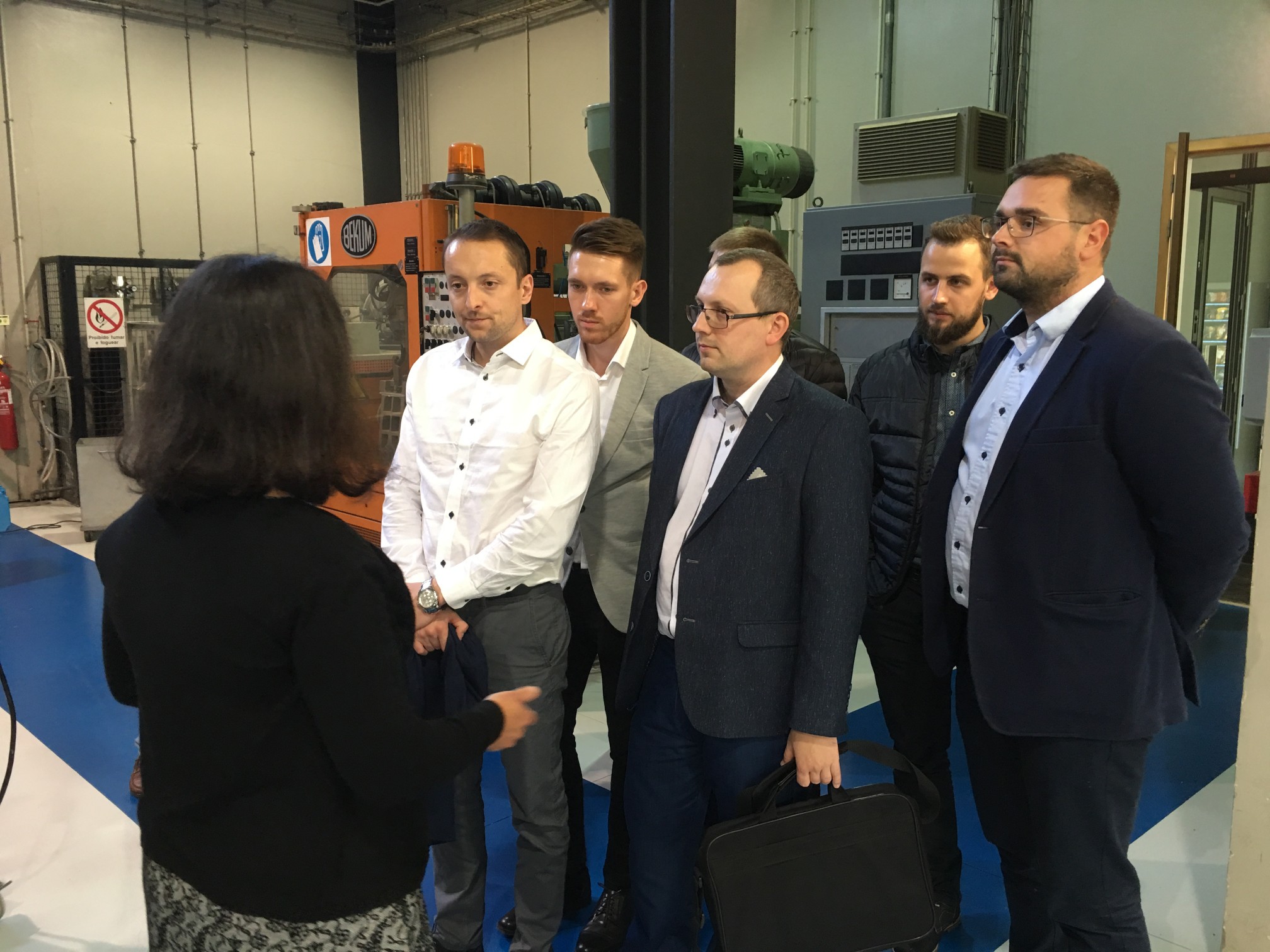On November 13-14, 2018, workshops on cross-sectoral and international cooperation were held to provide a general view on environmental issues related to plastic waste in order to transfer practical knowledge and skills to industrial participants.
The workshop was devoted to creating close relationships between the scientific and industrial sectors and building, based on this cooperation, spin-off and spin-out companies in order to commercialize innovative ideas emerging at the university. An approach to scientific and technological problems regarding technology transfer to develop innovative solutions and impact on industry and research was presented. Cooperation between research workers and industry was also discussed, through the presentation of examples, difficulties, discussions and conclusions. The workshops raised the participants’ awareness of the challenges posed by plastics and the environment. The first day of the workshop was devoted more to the University of Minho, presented the history of the university, its scientific, human, organizational and technical potential, the projects that were and are implemented and their effects.
The second day of the workshops concerned current issues devoted to the environment protection and sustainable development in the context of polymer waste and concerned the whole process of creating companies benefiting from the university intellectual resources and academic entrepreneurship. The workshops were conducted by Ms Conceição Paiva from the Department of Polymer Engineering and Ms Adriana Cunha from TecMinho. The first leader opened the discussion with the presentation „Plastics and Environment: Threats and Opportunities: A general look over environmental issues associated with plastics waste”, which highlighted different problems associated with plastics waste management, from plastics for long term applications to short lived applications, setting the need for environmental impact assessment based on life cycle analysis. An analysis of the waste management situation in Europe and USA, and some global observations were made. The need for solutions based on design for reuse and recycling was highlighted. Ms Adriana Cunha gave a presentation entitled „University-Industry collaboration: from collaborative projects to spin-offs”, which discussed the conditions for success by spin-off or spin-out companies, which depends on the availability of financial resources, a strong scientific foundation (institutional scientific base), technological and business knowledge resources, focused on a specific application and market niche as well as on business experience. The advantages and disadvantages of spin-off and spin-out companies as well as barriers in their formation were enumerated and discussed.

